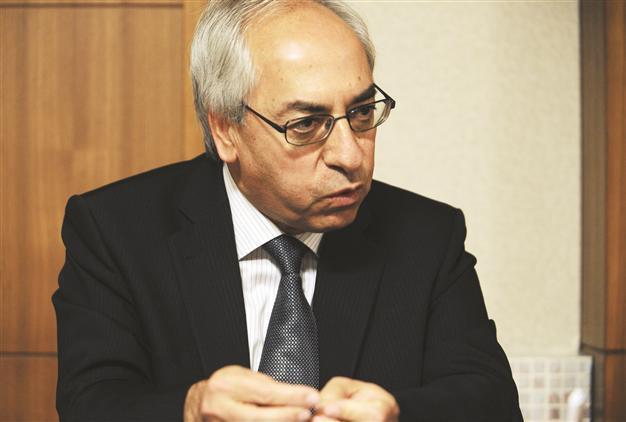Syria dissidents seek unity in Istanbul meet
ISTANBUL - Hürriyet Daily News

DAILY NEWS photo, Emrah GÜREL
The Syrian National Council and other anti-government groups convened in Istanbul on June 15 to map out a common vision for future policies as it seeks to overthrow President Bashar al-Assad.“Our first aim is to create reform inside the [council] and reconstruct our structure [while] continuing our relations with the other groups in the opposition,” the council’s new leader, Kurdish activist Abdel Basset Sayda, told the Hürriyet Daily News in an interview on June 15, adding that all groups that wished to join the council would be welcomed.
Representatives from several Arab and Western countries are in Istanbul to observe the proceedings of the two-day meeting, which brought together various opposition factions, including a Kurdish group.
France is being represented at the meeting by its ambassador to Damascus, who was recalled from Syria in November in protest at Damascus’ violence.
The United States, Germany, Italy and Turkey have also sent senior diplomats. The meeting comes ahead of a planned major conference organized by opposition groups in Cairo under the auspices of the Arab League, although no date for that meeting has yet been announced.
Sayda, who was named council leader June 10, has taken over the exiled dissident coalition at a time of mounting tensions between activists and rebel fighters on the ground inside Syria and the émigrés who have been the main point of contact with the outside world.
“We will follow the process inside Syria. We must support our youngsters and the Free Syrian Army. We will be sending the money that is collected to our people in Syria who need food, medicine and everything a human being needs in his life,” Sayda said.
Sayda also said the so-called “Yemen model,” under which al-Assad could hand over power to a deputy and depart, would not be suitable for Syria.
“The situation between Syria and Yemen is too different. If you look at the structure of the society, we can take something from the experience in Yemen, but we cannot do this in a mechanic way like it happened in Yemen,” Sayda said.
Some leaders from the Syrian opposition group the Kurdish National Council, which is based in the northern Iraqi city of Arbil, are also attending the meeting in Istanbul, Sayda said.
“This meeting is about the unification of the Syrian opposition. I am also expecting some reforms inside the [council],” the body’s former leader, Burhan Ghalioun, told the Daily News.
“We’re here to define a common position,” said Bassma Qodmani, the council’s head of foreign relations. “There are many more points of difference between us.”
Omar Qurabi, the leader of the Syrian opposition group the National Change Current, said he was not too optimistic about the reform process inside the council. “We [suggested] reforms in the first unity meeting, but everything we offered has been refused by the management of the [council],” Qurabi said.
A national document signed by all the opposition groups will be released at the end of the meeting.
Monitors say more than 14,400 people, most of them civilians, have been killed in Syria since anti-regime protests erupted in March 2011, prompting a bloody crackdown by al-Assad’s forces.
















